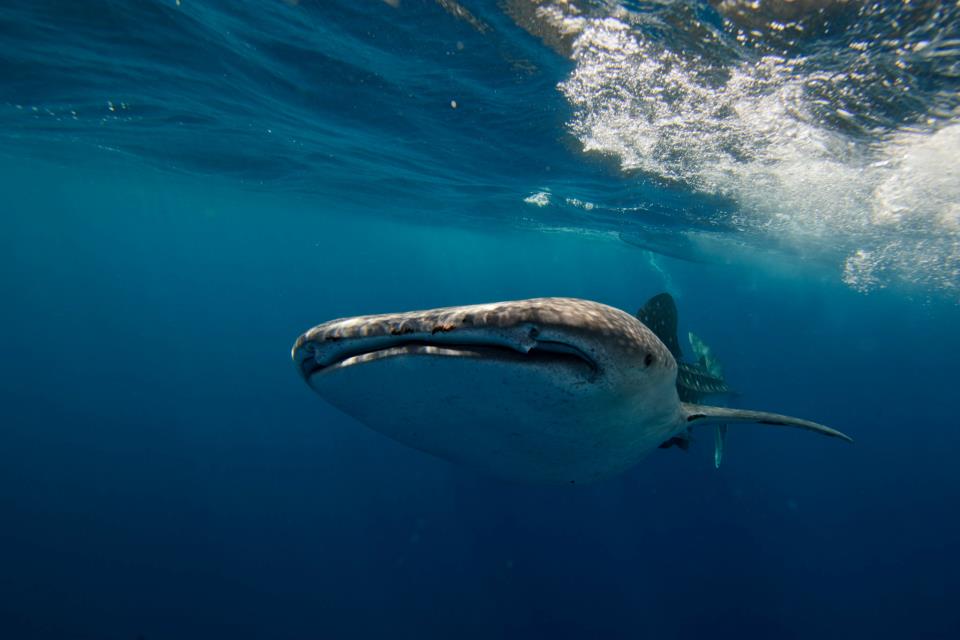1. Save Energy
Despite the overwhelming amount of evidence that shows that climate change is raising water temperatures and it negatively affecting marine life in the planet’s oceans, mankind has been slow to move towards using more environmentally-friendly modes of producing energy. To address this problem at the lowest possible level, you can reduce your own consumption of energy at home by using energy-efficient lighting and being conscientious of how you use electronics and air-conditioning. Electing to walk or take a bike take a bike instead of driving if possible to reduce your carbon footprint. Amplify this by encouraging your family and friends to do the same.
2. Make Safe, Sustainable Seafood Choices
The insatiable appetite of man for seafood has triggered the overfishing of the oceans. According to the WWF, 85% of the world’s fisheries have been pushed to or beyond the biological limit that the environment could naturally replenish the fish stocks to and management would be required to allow these areas to recover. If we are unable to address the situation, we could face a very real possibility of fish stock collapse.
3. Limit Your Use of Plastic
According to a report filed by CNN, there could be as many 12 million tons of trash that ends up in the ocean. Virtually every bit of plastic that has ever been produced is still existent in one form or another and once they reach the oceans, they could affect marine life and the water quality in various ways. Many sea creatures have been known to have been found with digestive systems filled with pieces of plastic. Turtles have been known to choke on larger pieces when they mistake plastic as food.
4. Help Take Care of the Beach
Whenever you go to the beach, make sure that you do your part to clean up after yourself. Enjoy the beach without taking anything like rocks, sand or coral. Do your best to encourage your family and friends to keep the beach clean as well.
5. Don’t Purchase Items That Exploit Marine Life
Certain products contribute to the harming of fragile coral reefs and marine populations. Avoid purchasing items such as coral jewelry, tortoiseshell hair accessories (made from hawksbill turtles), and shark products. Continuous patronage of these products can increase the willingness of poachers to harvest threatened species to feed the market’s demand.
6. Be an Ocean-Friendly Pet Owner
Read pet food labels and consider seafood sustainability when choosing a diet for your pet. Never flush cat litter, which can contain pathogens harmful to marine life. Avoid stocking your aquarium with wild-caught saltwater fish, and never release any aquarium fish into the ocean or other bodies of water, a practice that can introduce non-native species harmful to the existing ecosystem.
7. Support Organizations That Help Defend the World’s Oceans
In the Philippines, the World Wildlife Fund is very active in conservation efforts. Save Philippine Seas has been very active in communities both in cities and in the provinces to help educate Filipinos about the importance of the sea’s well being and how it impacts everyone economically. The Lamave Project has also be invaluable with its contributions in helping us understand the impact of whale shark interactions in Oslob as building the biodiversity catalog of the Tubbataha Reef National Park.
8. Be More Socially-Aware
Be on the alert for ocean policies that public officials and government departments. You can do this by following the non-government organizations that advocate in behalf of the sea’s welfare. Be aware of the practices of restaurants and grocery stores and try to learn more about how the food you it is sourced and processed. Be vigilant about reporting any sighting of illegal fishing and prohibited sale of protected species.
9. Travel and Enjoy the Ocean Responsibly
Practice responsible boating, kayaking, and other recreational activities on the water. Never throw anything overboard, and be aware of marine life in the waters around you. If you’re set on taking a cruise for your next vacation, do some research to find the most eco-friendly option. As a diver, make sure that you follow the recommendations of Green Fins – do not stir up sediment, do not risk damaging coral by touching it, do not harass and touch marine life and do not feed the fish.
10. Educate Yourself About Oceans and Marine Life
Be an active learner about the oceans and always read up about new discoveries about the oceans. The more you know about the oceans, the more you can do to help save it. If you really want to help more, all the NGOs mentioned in this article allow for volunteers to assist them in various capacities – from anything from being writers, photographers, project managers and even being actual scientists.
